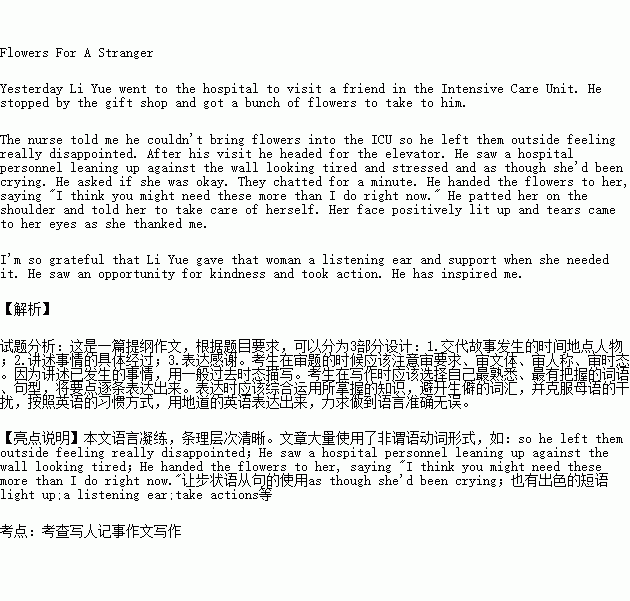题目内容
昨天,你的同班同学李越做了一件好事。请你根据事情的经过(买了束花去医院看朋友,但是护士不许带入监护病房,等电梯时看到一位伤心的医院工作人员,把花送给了她),用英语写个题目为Flowers For A Stranger (100-120个词)的博客。
你的文章应包括下列要点:
1.事情的经过;
2.你的评论。
注意:文章的标题和开头已给出(不计词数)。
参考词汇:电梯elevator,医院工作人员hospital personnel
Flowers For A Stranger
Yesterday Li Yue went to the hospital to visit a friend in the Intensive Care Unit. _______________________________________________________________________________
_______________________________________________________________________________
_______________________________________________________________________________
_______________________________________________________________________________
_______________________________________________________________________________
_______________________________________________________________________________
_______________________________________________________________________________
_______________________________________________________________________________
 每日10分钟口算心算速算天天练系列答案
每日10分钟口算心算速算天天练系列答案
